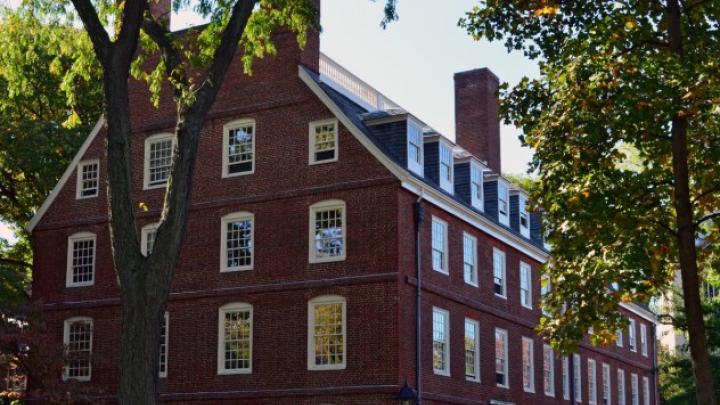Harvard graduate students will receive stipend increases of 1.5 percent next year, dean of the Graduate School of Arts and Sciences (GSAS) Xiao-Li Meng wrote in an email to students this week. The increase represents a significant reduction from previous years’ raises (stipends rose 3 percent for the current academic year), and comes during a moment of financial restraint for the Faculty of Arts and Sciences (FAS)—as well as concerted labor organizing among graduate students.
Meng also highlighted some of the benefits graduate students have received recently, including an increase in the subway- and bus-pass subsidy, to 50 percent (in line with the University’s subsidy for faculty and staff members); an increase in paid parental leave, from six weeks to 12 weeks; and access to funding for “professional development activities.”
Graduate students currently receive annual stipends ranging from about $33,100 to $36,700, including summer funding, and typically have received annual raises in the 3 percent range, similar to compensation increases for University staff. Members of the Harvard Union of Clerical and Technical Workers, the University’s largest union, receive 3.4 percent annual raises, under a contract negotiated last year. The University reported recently that rents for Harvard-owned apartments will increase 3 percent on average next year. Boston-area inflation was around 3 percent during the last year, according to the U.S. Labor Department.
The news comes amid difficult financial circumstances for Harvard—the value of the University’s endowment decreased 5.1 percent last fiscal year—and for GSAS in particular, Meng wrote: “In the fall, Harvard learned that a disappointing financial return on the University’s endowment would create significant financial challenges across the University. It soon became clear that GSAS would not receive any incremental funding next year relative to this year—a significant challenge especially considering that the full cost increase of many of the new student benefits GSAS has added in recent years will be realized in the upcoming academic year.”
To pay for the 1.5 percent stipend increase and other benefits for students, GSAS decided to admit 2.2 percent fewer students for the next academic year. “Behind this tradeoff was a commitment, first and foremost, to making sure that our current students have the best experience possible,” Meng wrote. “It was a hard choice, but we believe strongly that it was the right one.”
In response to Meng’s announcement, the Harvard Graduate Student Union-United Auto Workers (HGSU-UAW), the group that has been organizing to form a graduate student labor union, sent students an email with the subject “With a union, this would be different”:
Dean Meng announced we will receive only a 1.5% increase in pay next year. This is a significant change to previous years and to what students have come to expect, and it is considerably less than the rent increase on Harvard’s apartments. One of the core reasons to have a union is so we have a say in our compensation. With a union, the administration would have to bargain with us before making any changes, and we would democratically decide a contract. That contract could guarantee rates of pay increase for future years. Without a union, the administration can make changes at any time without consent.
Meanwhile, the results of Harvard’s still-inconclusive graduate student union election are being sorted out by the National Labor Relations Board (NLRB). Among counted votes, more students voted against forming a labor union than for one, but the eligibility of 300 votes remains under challenge. The union believes that the NLRB will void the results of the election and call for a new one.
The modest increase in the stipend is of most immediate interest to the affected graduate students—but perhaps should also attract attention elsewhere in the University, where guidance on compensation increases for the fiscal year beginning July 1 has not yet been publicized. Comparable constraint in salary awards for employees would hardly be surprising given Harvard’s current finances, including increased concerns about sharp reductions in federal support for research. The recent announcement that the undergraduate term bill would increase 4.1 percent next year (a greater increase than in the recent past) is another indication that the institution’s leaders, or at least those in FAS (which includes GSAS and the College), are pressing hard for additional revenue.









